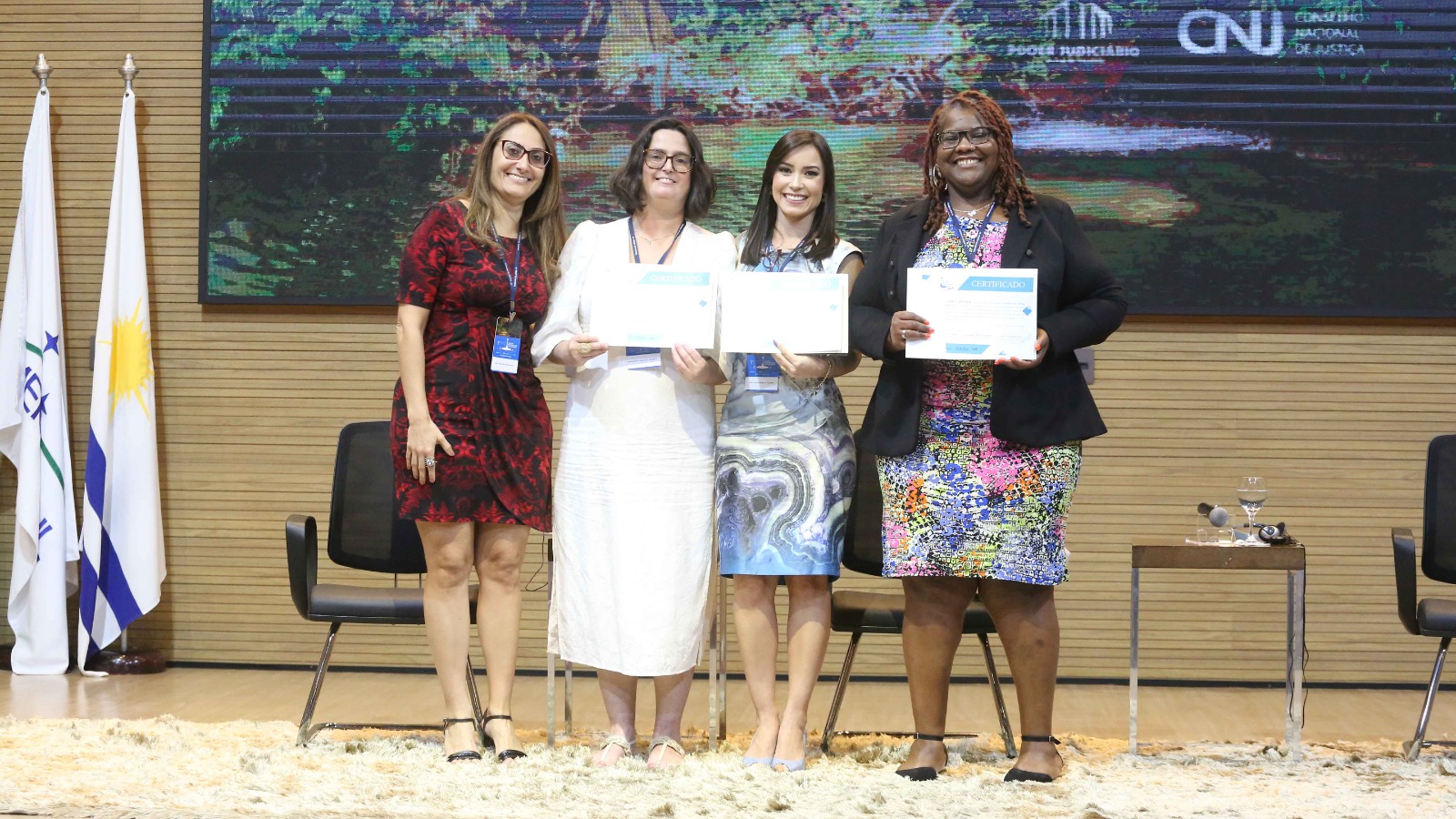
The solution was pointed out by the Judge of the Court of the Federal District (TJDF), Flávia Pinheiro Brandão Oliveira, during a presentation on the pilot project developed in a public school in Planaltina (DF), as well as on the Chicago (USA) experience "Turning Conflicts into Opportunities for Growth", presented by Educator and Member of the Chicago City Wide Restorative Justice Committee, Eboni Rucker, at the Panel III of the 1st National Meeting on Restorative Justice in Education, held on Thursday afternoon (August 24th), in the auditorium of the Court of Justice of the State of Tocantins (TJTO). The event continues until Friday (August 25th).
Seed planted in Planaltina (DF – Federal Ditrict)
To make the pilot project a reality, a 30-hour course was held between the Judiciary and the school, with the aim of training teachers and management staff in qualified listening; strengthening ties between the school group itself; bonding circles with students; and the need to set up a peace council. The course ended last week.
"Although it's in its infancy, the project is already resonating in the community of Planaltina. To know where it's going you have to start and our little seed has been planted and we hope it will grow and bear good fruit. The project is alive, and it needs to change according to the demands that arise. It's important to note that it's not imposed on the school community, membership is voluntary. There has to be a sense of belonging on the part of everyone involved in the process, which is very important for the success of the process. Only in this way we will be able to transform punishment into reparation for damage through dialogue, based on the logic of non-violence, respect and the principles of human rights," said Judge Flávia.
Connection leads to change
In the second lecture of the Panel, Educator Eboni Rucker presented the project implemented in a Chicago school with 1908 students, where Reset Room Supplies was installed and saw an 89% reduction in student suspensions after its approach, which consists of individual and collective listening, through a circle, to assess and understand emotions. It also works with the school body on: empathy with each other; regulating emotions; responsible decision-making; conflict resolution; problem solving.
"Today, for example, you're seeing a black woman from the United States. There the nation says that everyone can study, but we blacks didn't know how to do it. Racism is outrageous and brings a lot of social and emotional damage. We need to see our students. In restorative justice practices, it's important to explore history, to know and value people, to have connections. Connection leads to change and this is possible when our hearts respect each other and allow us to create these bridges. When you reach the hearts of these children, you can see change happen. Mistreating, ignoring, being indifferent only makes it worse. We're talking about people who need to be saved. I don't do anything they can do on their own, like tying a shoelace. We have to find out what's stopping them from taking care of themselves. We have to create bridges and help them in this rescue through equity, which is different from equality. Fairness is associated with justice, what belongs to everyone, looking at the structure, the whole. It's not easy, it's a long process that requires time and compassion, with an analysis of the family structure of the student, socio-economic, family and cultural conditions and all the factors involved."
High level
"The level of the speakers is very high, it's going to get complicated for me tomorrow," said João Salm, Associate Professor of Criminal Justice at Governors State University in Chicago and Ph.D. from the School of Justice and Social Research at Arizona State University, who will give the lecture on "The School-Prison Pipeline in the North American Experience" this Friday at 2:30 pm.
"For example, what Eboni did was to learn more about these principles and practices, as she said today, by reading the literature, studying and thinking. But she didn't just study and learn, she thought about how she could use this knowledge to transform her school. And, seeing where these people and needs were, she got creative and developed a project that today draws the attention not only of her school, the principals, the superintendents, but of the Chicago Public Schools, which is an organization, the fourth largest collegiate of students in the United States. Creative and collaborative, not just involving the principal, the administrator, the superintendent, the state education department, the municipal education department, teachers, the staff who works in the school, the cleaners and, above all, the students. Because from the moment you invite the students to this democratic process, to implement democratic justice, you are mirroring practice. But also the idea of practice, not only in terms of conflict resolution, whether within the school, but also within the institution and with the students themselves," concluded Professor João Salm.




